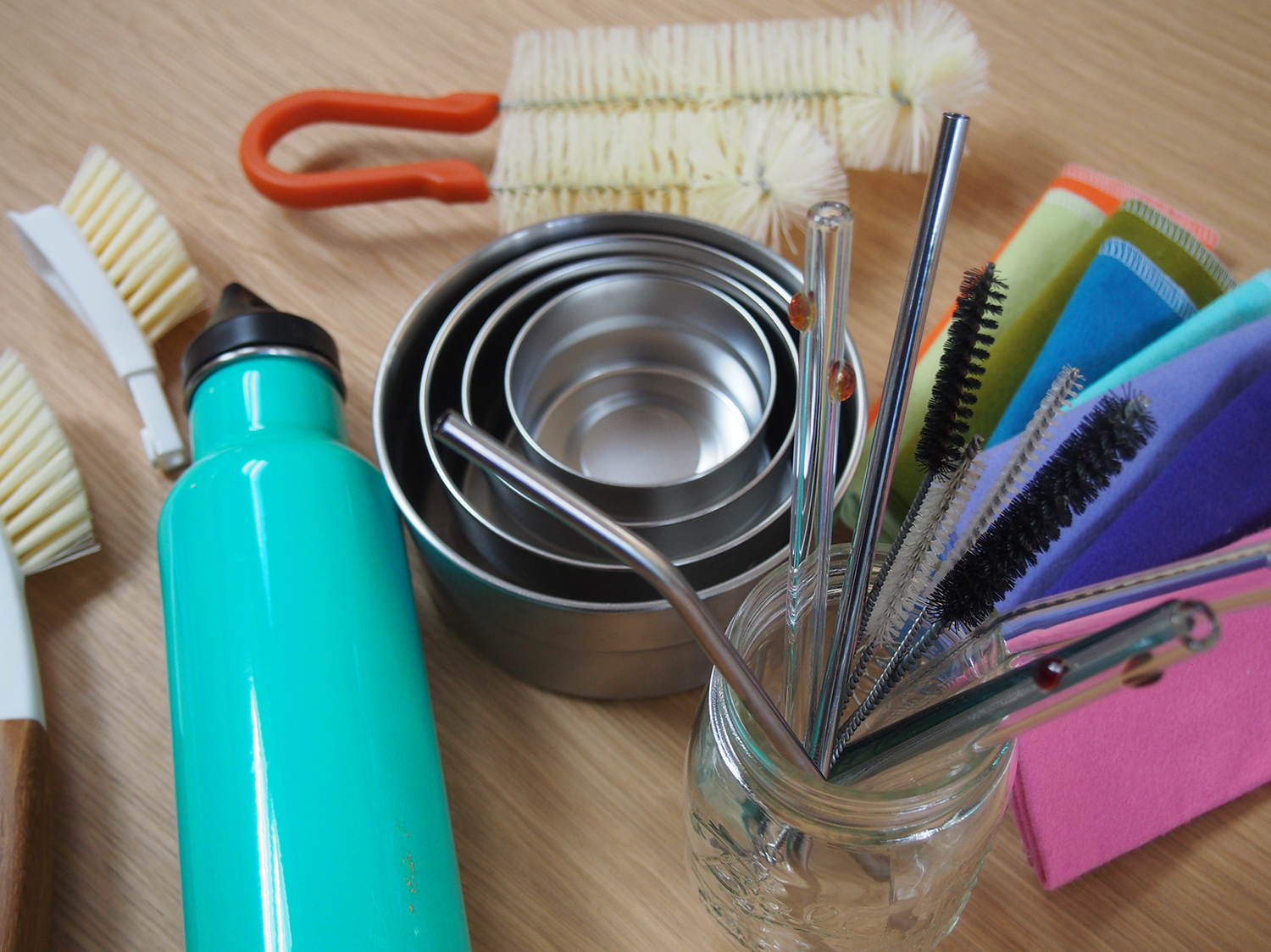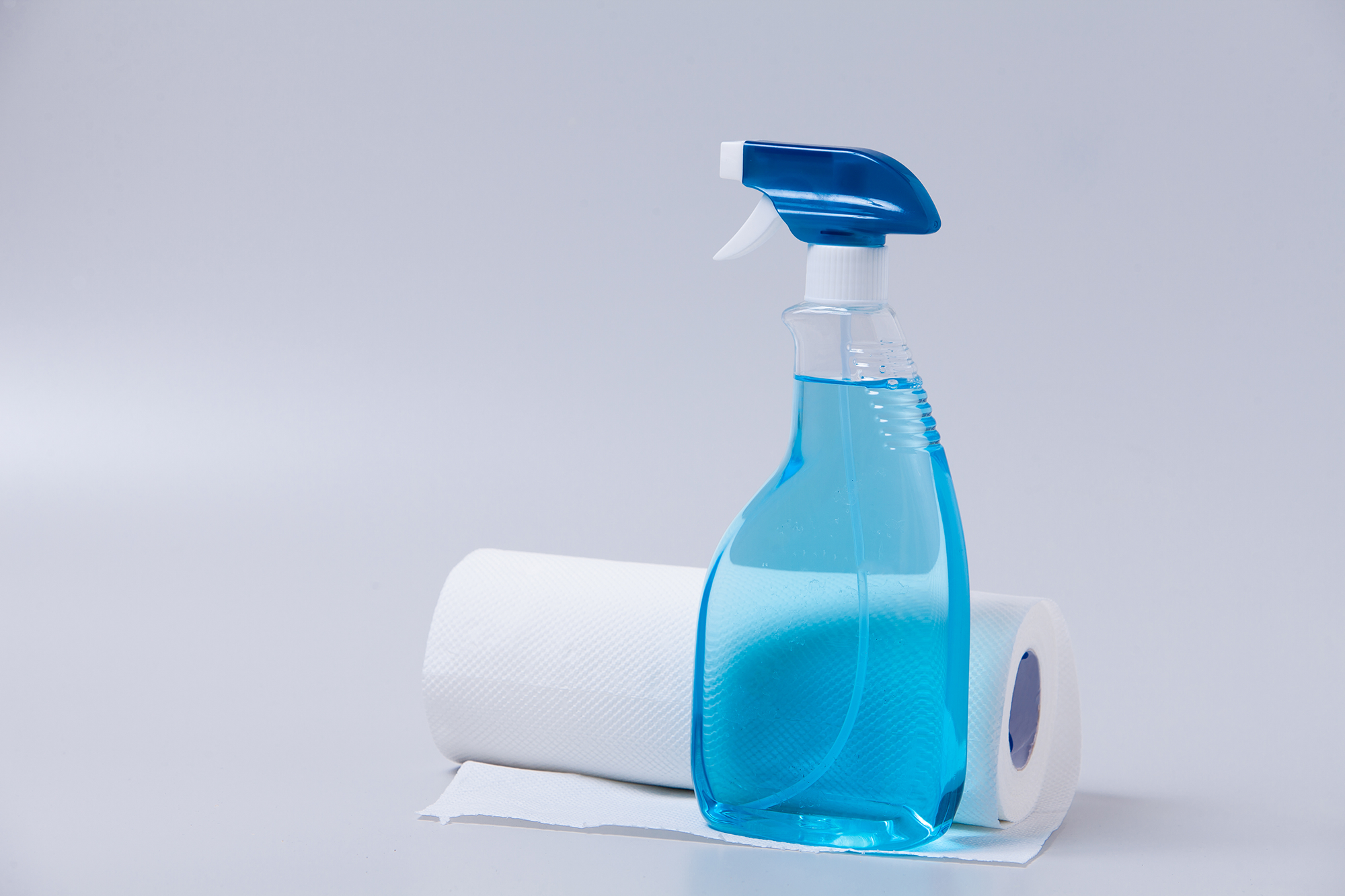Reusables need a little TLC. Here are tips to keep them thriving.
Reduce, reuse, recycle—those classic 3 Rs have paved the way for eco-friendly living. But this spring, why not expand your eco vocabulary with a few more Rs? Roll up your eco-sleeves and let's dive into some non-toxic tips and tricks to ensure your kitchen tools stay in top-notch condition. Reusable, eco-friendly kitchen tools deserve some love and care to continue their vital role in maintaining a zero-waste, non-toxic kitchen.
Reorganize: Resplendent Reusable Containers
Organizing your reusable containers is a true art form. Take a moment to declutter your "Tupperware" drawer, removing any plastic containers and replacing them with non-toxic stainless steel and glass options. Say goodbye to leachy plastic and choose options that are BPA free and healthier for people and our planet.
If something's damaged or missing, order replacement parts from the manufacturer. For example, ECOlunchbox offers silicone replacement lids for its leakproof Seal Cup Trio steel set and other products. Losing a piece doesn't mean saying goodbye to the entire set.
Recycle: Tackling the Plastic Bag Dilemma
Despite our best efforts, plastic waste creeps in. Check with your local recycling company or inquire at the grocery store to see if they accept plastic bags. While loose ones might jam conveyor belts, bagged together, curbside companies often accept them.
While you’re at it, find the reusable bags you have on hand and give them a good wash. Donate damaged or permanently dirty bags to your local thrift store. Goodwill and other donation organizations gather textiles that can’t be resold and route to recycling centers.
Take the opportunity to fill in the gaps in your reusable bag collection by adding a few fresh reusable totes and produce bags to keep
Refresh: Spa Day for Your Sponges
Sponges and dish cloths may clean your dishes, but they need regular cleaning too! Toss sponges, dish brushes, scrub pads, and reusable counter wipes into a steamy hot dishwasher for a rejuvenating spa day.
No dishwasher? No problem. Soak them in white vinegar overnight and wring them out in the morning. Replace when they wear out or develop black mildew.
Purge old ones appropriately. Find out if your sponge is trash or can be composted. Replace spent sponges and dish cloths with cellulose biodegradable alternatives like a Swedish Dish Cloth or Walnut Scrubber Sponges.
Review: A Green Evaluation of Cleaning Supplies
Take a peek under the sink or in the closet. Assess your cleaning liquids and powders and identify non-toxic alternatives. Find a healthy option like Boulder Clean tablets to mix up at home in glass bottles that’s both non-toxic and sold in reusable containers to reduce plastic waste.
Or whip up a batch of non-toxic DIY cleanser. Mix white vinegar with warm water and a few drops of soap for an all-purpose cleaner. Then wipe down surfaces and give yourself a pat on the back for your good old-fashioned cleanliness!
Renew: Scrub Out Yuck from Bottles & Straws
While reusable bottles are a fantastic eco-friendly choice, they can accumulate hidden gunk. Take a moment to inspect the interior of your favorite stainless steel or glass bottle, especially the gaskets. An easy solution is to purchase a bottle brush that fits your bottle's opening or opt for a bottle versatile brush.
Straws may not be top of mind for everyone, but if you're on a plastic-free journey, they're worth considering. Clean your existing straws or invest in glass straws and a cleaning brush.
Revive: Waxing and Oiling
Reviving wax-covered muslin cloth wraps, such as bowl covers and cheese wraps from Beeswrap, is simple. Warm the cloth in a low-heat oven for 3 to 5 minutes, then carefully hang it up to dry. This quick process will bring them back to a good-as-new shine!
If you've switched to wood or bamboo cutting boards, ensure to seal them with wood or bamboo oil. Our friends at Bambu offer a lovely mineral-based oil that works wonders. Use a soft cloth towel to apply the oil, allowing it to soak in before wiping off any excess.
Guest contributor Sandra Ann Harris is the author of “Say Goodbye To Plastic: A Survival Guide For Plastic-Free Living” and the founder of ECOlunchbox, a certified plastic-free B Corporation and California Green Business specializing in stainless steel and silicone food containers.



